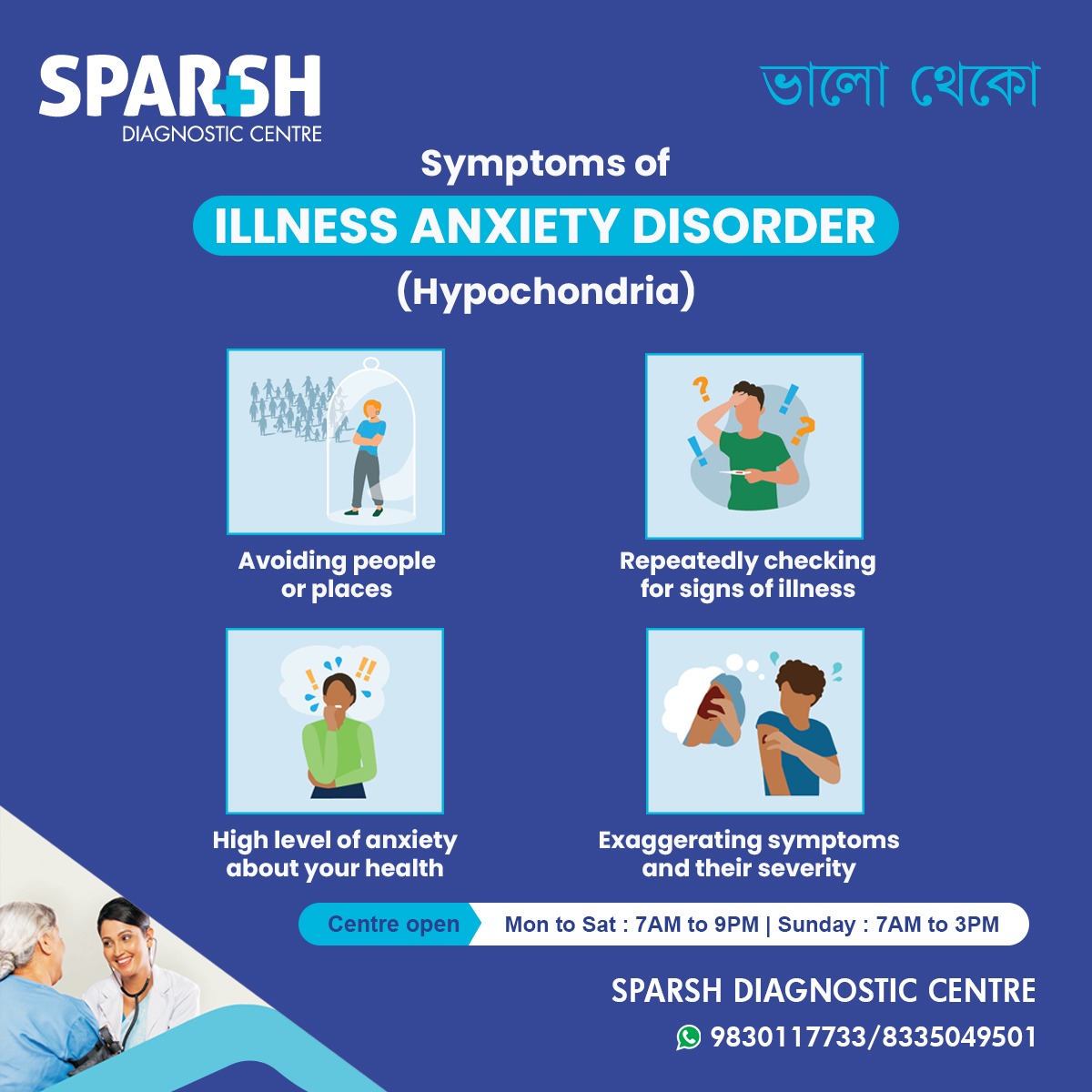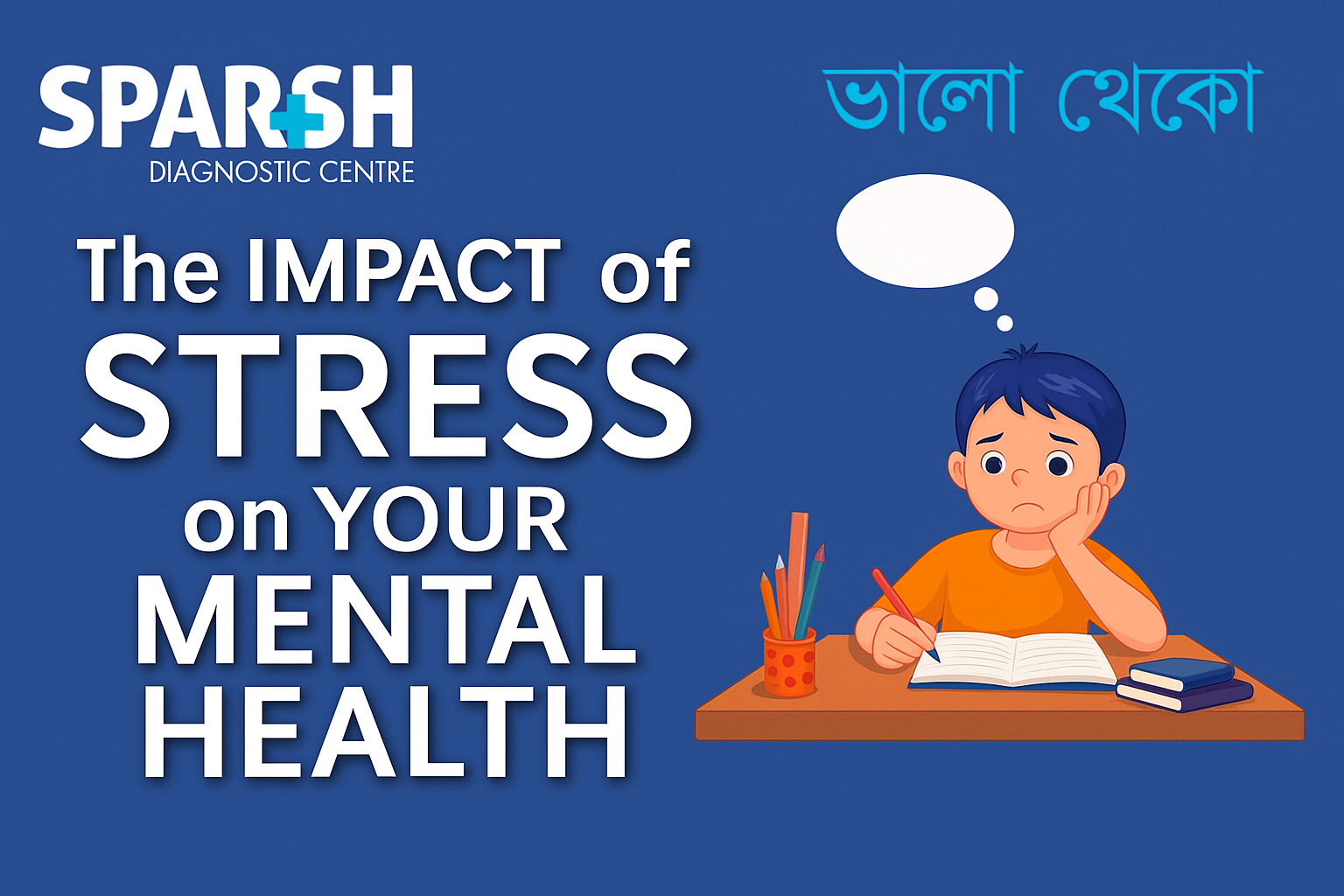Illness is a normal part of human life. But for some individuals, the fear of being seriously ill becomes so overwhelming that it disrupts their daily functioning—despite having little or no medical evidence to support their concerns. This condition is known as Hypochondria, now medically termed as Illness Anxiety Disorder (IAD).
In today’s digital age, where health information is readily accessible—and often alarming—many people find themselves questioning every minor symptom. But when this concern turns into a persistent, irrational fear of severe illness, it may indicate Hypochondria.
What is Hypochondria?
Hypochondria, or Illness Anxiety Disorder, is a mental health condition where individuals are excessively worried about having a serious illness, even when medical evaluations show no significant health issues.
These individuals often misinterpret normal body sensations—such as a mild headache, heart palpitations, or digestive discomfort—as signs of a life-threatening disease. Despite reassurance from doctors and negative test results, their anxiety persists, and they may compulsively seek medical help or avoid it altogether due to fear.
Key Symptoms of Hypochondria
Hypochondria manifests primarily through thoughts and behaviors related to perceived health threats. Some common symptoms include:
1. Avoiding People or Places
Individuals may avoid crowded areas, hospitals, or even friends and family for fear of catching a disease. This social isolation can lead to loneliness and depression.
2. Repeatedly Checking for Signs of Illness
Constantly monitoring one’s body—checking temperature, pulse, or scanning for rashes or lumps—is typical. Some may even use diagnostic tools at home obsessively.
3. High Level of Anxiety About Your Health
The anxiety is persistent and disproportionate to actual health status. People may spend hours each day worrying about being sick.
4. Exaggerating Symptoms and Their Severity
Minor aches or discomforts are viewed as signs of serious illness. For example, a sore throat might be interpreted as throat cancer.
5. Frequent Doctor Visits or Complete Avoidance
While some individuals may constantly seek reassurance through medical tests and doctor consultations, others might avoid doctors entirely out of fear of receiving bad news.
6. Doubt in Medical Test Results
Even after being told they are healthy, individuals with hypochondria may believe doctors missed something or tests were inaccurate.

Causes of Hypochondria
There is no single cause of Hypochondria. Rather, it results from a complex interplay of psychological, biological, and environmental factors:
1. Family History
People with close relatives who suffer from health anxiety or obsessive-compulsive tendencies may be more prone.
2. Past Trauma or Serious Illness
Having gone through a major health issue in the past can make a person hyper-aware of bodily symptoms.
3. Overexposure to Health Information
Excessive reading or viewing of medical content—especially online—can lead to “cyberchondria,” where internet searches escalate fears.
4. Coexisting Mental Health Conditions
Depression, anxiety disorders, obsessive-compulsive disorder (OCD), and somatic symptom disorder often coexist with hypochondria.
5. Personality Traits
People who are more prone to worrying, perfectionism, or are highly conscientious may be at increased risk.
Hypochondria vs. Somatic Symptom Disorder: What’s the Difference?
While both involve health-related anxiety, there’s a distinction:
Hypochondria / Illness Anxiety Disorder: The person fears serious illness without significant physical symptoms.
Somatic Symptom Disorder: The focus is on the physical symptoms themselves, which are real but often medically unexplained or minor.
Diagnosis: How is Hypochondria Identified?
Diagnosing Illness Anxiety Disorder involves careful psychological evaluation. Medical professionals use the DSM-5 (Diagnostic and Statistical Manual of Mental Disorders) criteria, which include:
Preoccupation with having or acquiring a serious illness.
Somatic symptoms are not present or, if present, are mild.
Excessive health-related behaviors or maladaptive avoidance.
Illness preoccupation lasting for at least 6 months.
Not better explained by another mental disorder (e.g., panic disorder, generalized anxiety disorder, OCD).
Doctors may run some basic medical tests to rule out physical conditions before referring the patient to a mental health specialist.
Treatment Options for Hypochondria
While Hypochondria can be distressing, it is treatable. The goal of treatment is not only to reduce health anxiety but also to improve quality of life and daily functioning.
1. Cognitive Behavioral Therapy (CBT)
CBT is the most effective treatment for hypochondria. It helps patients:
Recognize and challenge irrational thoughts.
Reduce checking and reassurance-seeking behaviors.
Learn healthier ways to cope with anxiety.
2. Mindfulness-Based Therapies
Mindfulness and meditation practices help patients stay grounded in the present and observe their thoughts without judgment.
3. Medication
In some cases, doctors may prescribe SSRIs (Selective Serotonin Reuptake Inhibitors) like fluoxetine or sertraline to help manage underlying anxiety or depression.
4. Psychoeducation
Learning about the nature of health anxiety can empower patients to understand their condition and work actively toward recovery.
5. Support Groups and Therapy
Group therapy or online support communities provide reassurance and shared coping strategies from others with similar experiences.
Living with Hypochondria: Self-Help Tips
In addition to professional treatment, here are strategies that individuals can practice at home:
1. Limit Health-Related Internet Use
Avoid searching symptoms online, as it can escalate fears. Stick to trusted medical sources or consult your doctor.
2. Keep a Thought Journal
Track anxious thoughts, triggers, and responses. Over time, patterns will emerge that can be addressed with your therapist.
3. Schedule Health Check-Ins
Instead of impulsively visiting the doctor, schedule routine appointments and resist the urge to check symptoms in between.
4. Engage in Relaxation Techniques
Yoga, deep breathing, or progressive muscle relaxation can reduce overall anxiety.
5. Maintain a Healthy Routine
Balanced nutrition, regular exercise, and sufficient sleep are key to both physical and mental health.
Hypochondria in the Digital Age: The Rise of Cyberchondria
With access to unlimited online health information, a growing number of people are falling into the trap of cyberchondria—a modern-day version of hypochondria fueled by internet searches.
This can lead to a feedback loop:
A minor symptom → search online → read worst-case scenarios → increased anxiety → more searching.
It’s crucial to recognize the dangers of self-diagnosis and prioritize professional help over online speculation.
When to Seek Help
If your fear of illness:
Interferes with your daily life
Causes significant distress
Leads to frequent doctor visits or social isolation
Makes you distrust repeated medical assurances
…it’s time to consult a mental health professional. Early intervention can significantly improve prognosis and prevent complications.
Supporting Someone with Hypochondria
If a friend or family member is suffering from illness anxiety disorder:
Be patient and empathetic—avoid dismissing their fears.
Encourage professional help—gently guide them toward therapy.
Avoid providing excessive reassurance—it may reinforce the anxiety cycle.
Educate yourself—the more you understand the condition, the better you can support them.
Hypochondria—or Illness Anxiety Disorder—is not “just in someone’s head.” It’s a real and often debilitating condition rooted in intense anxiety and distorted thinking patterns. The good news is, with the right combination of therapy, support, and lifestyle changes, recovery is absolutely possible.
If you or someone you know is struggling with excessive health fears, don’t hesitate to seek help. Addressing mental health is just as important as caring for physical health—and it starts with understanding and compassion.
Need Help?
If you’re in Kolkata, visit Sparsh Diagnostic Centre for a holistic approach to health. Our experienced mental health professionals can help guide you on the path to healing.
Contact us at:
📞 9830117733 / 8335049501
🕘 Mon to Sat: 7AM – 9PM | Sunday: 7AM – 3PM
🌐 Visit Our Website
#BhaloTheko
Disclaimer:
No content on this site, regardless of date, should ever be used as a substitute for direct medical advice from your doctor or other qualified clinician.

![]()





